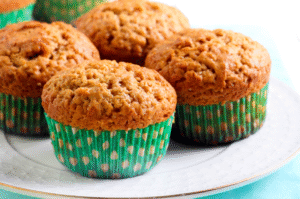
Dr. Roshan Ramlal, PhD MPH, FACS Agent, UGA Extension Forsyth County
The joy of childhood often involves simple pleasures: birthday parties, classroom treats, sports, and summer camps. However, for a growing number of families, these seemingly carefree moments are fraught with anxiety due to the ever-present threat of peanut allergies, which are on the rise. Over the past 20 years, the numbers have more than tripled. Recent advancements in research are shedding light on prevention strategies to protect kids, and Georgia experts are urging parents and caregivers to become more informed.
Peanut allergy is one of the most common food allergies, affecting an estimated 2% of children in the United States. Reactions can range from mild hives and stomach upset to severe, life-threatening anaphylaxis, a potentially life-threatening allergic response. For families navigating this condition, close attention is required, impacting everything from school lunches and social gatherings to travel and dining out.
For years, the prevailing advice was to avoid peanuts until 2 or 3 years old. However, groundbreaking research, most notably the Learning Early About Peanut Allergy (LEAP) study, has challenged this notion. This landmark study demonstrated that introducing peanut-containing foods to high-risk infants between 4 and 6 months of age significantly reduced their risk of developing peanut allergies by the age of five. In fact, early introduction reduced the development of peanut allergy by up to 86%. These recommendations are endorsed by the American Academy of Pediatrics.
Identifying High-Risk Infants
So, who are considered high-risk infants? Babies with severe eczema, egg allergy, or a family history of food allergies should be evaluated by their pediatrician or an allergist before the introduction of peanut-containing foods. Skin prick testing or blood tests may be recommended to assess their initial risk level.
Safe Introduction Strategies
Introducing peanut protein should be done safely and cautiously. UGA Extension recommends the following approach, which align with the Dietary Guidelines for Americans:

- Form: Whole peanuts should never be given to infants (or children up to 5 years of age) due to choking hazards. It is not safe to give your baby or toddler peanut butter by itself (until at least 4 years old). Safe forms of peanut include smooth peanut butter thinned with breast milk or formula, peanut butter powder mixed into purees, or commercially prepared peanut-containing puffs or yogurt. The Peanut Institute offers helpful guides on safe first foods containing peanuts: https://peanut-institute.com/
- First Feed: The initial introduction should be a small amount, given at home, when the infant is healthy. Observe for any signs of an allergic reaction for at least two hours.
- Consistency: Once tolerated, peanut-containing foods should be included in the infant’s diet regularly, ideally a few times per week, to maintain tolerance.

Dispelling Common Myths
Some common myths surrounding peanut allergy prevention, many of which are addressed by resources from the National Peanut Board are:
- Myth: Breastfeeding protects against food allergies. While breastfeeding has numerous benefits, it doesn’t prevent food allergies. However, it can help strengthen the infant’s immune system.
- Myth: Introducing peanuts early will cause an allergic reaction. For most infants, early introduction, done safely, is protective. However, it’s crucial to identify high-risk infants and consult with a healthcare professional. The Peanut Institute provides clear information debunking this myth based on the LEAP study findings.
- Myth: If there’s a family history of peanut allergy, all siblings will also be allergic. While genetics play a role, it doesn’t guarantee that siblings will develop the allergy. Early introduction may still be beneficial under medical guidance.
Reliable Nutrition Information
Several online resources offer details on food allergies, peanut allergy research, the nutritional benefits of peanuts, along with easy, tasty recipes. Here are some selected resources:
https://site.extension.uga.edu/peanutallergyprevention
https://nationalpeanutboard.org/nutrition
Not sure? Need advice on food allergies?
Local allergists and pediatricians are equipped to answer your questions, assess risk and guide parents through the early introduction process.
For food allergy treatment, Dr. Thomas Chacko of Food Allergies Atlanta in Cumming offers oral immunotherapy (OIT), which desensitizes children and adults to their food allergens, a method used to build tolerance to the allergen safely.
The Nutritional Power of Peanuts
Beyond allergy prevention, peanuts offer significant nutritional benefits, especially for growing children. As highlighted by the National Peanut Board, peanuts are a good source of protein, providing 7 grams per 1-ounce serving. They also provide mostly good fats that can help support heart health and brain development. Peanuts contain more than 30 essential vitamins and nutrients, including fiber, vitamin E, magnesium, and folate, which are necessary to support growing kids. The Peanut Institute also emphasizes the nutritional value of peanuts as part of a healthy diet.

Eggy Peanut Butter Mini-Muffins (For Self-feeding Infants 9+ Months)
By: Sherry Coleman Collins, MS, RDN, LD
Prep time: 25 minutes Total Servings: 8 Serving Size: 1 mini-muffin; easy
Ingredients:
- ¼ cup powdered peanut butter (16g)
- ¼ cup whole wheat flour
- ¼ teaspoon baking powder
- 1/8 teaspoon baking soda
- Pinch of cinnamon
- 1 egg plus 1 egg white (9.3g)
- ¼ cup well-mashed/pureed sweet potato or pumpkin puree
- 1 tablespoon maple syrup (optional)
Directions:
- Preheat the oven to 350 degrees. Spray mini-muffin pan with pan spray.
- Mix the dry ingredients, powdered peanut butter through cinnamon, in a medium bowl.
- In a small bowl, mix the wet ingredients, egg, egg white, puree, and maple syrup if using.
- Add the wet ingredients to the dry ingredients and mix just until no more flour is visible.
- Divide between 8 mini-muffin tin holes.
- Bake for 12-15 minutes or until a toothpick inserted into the middle of a muffin comes out clean.
Note: Each muffin contains approximately 2g peanut protein and 1.2g egg protein. NIAID recommends introducing peanut foods to infants as early as 4-6 months to help prevent a peanut allergy. Visit www.PreventPeanutAllergies.orgfor more information.
Nutrients Per serving:
- Calories: 35
- Fat: 0.5 g
- Trans fats: 0 g
- Cholesterol: 25 mg
- Carbohydrate: 5 g
- Protein: 3 g
- Fiber: 1 g
- Sodium: 55 mg